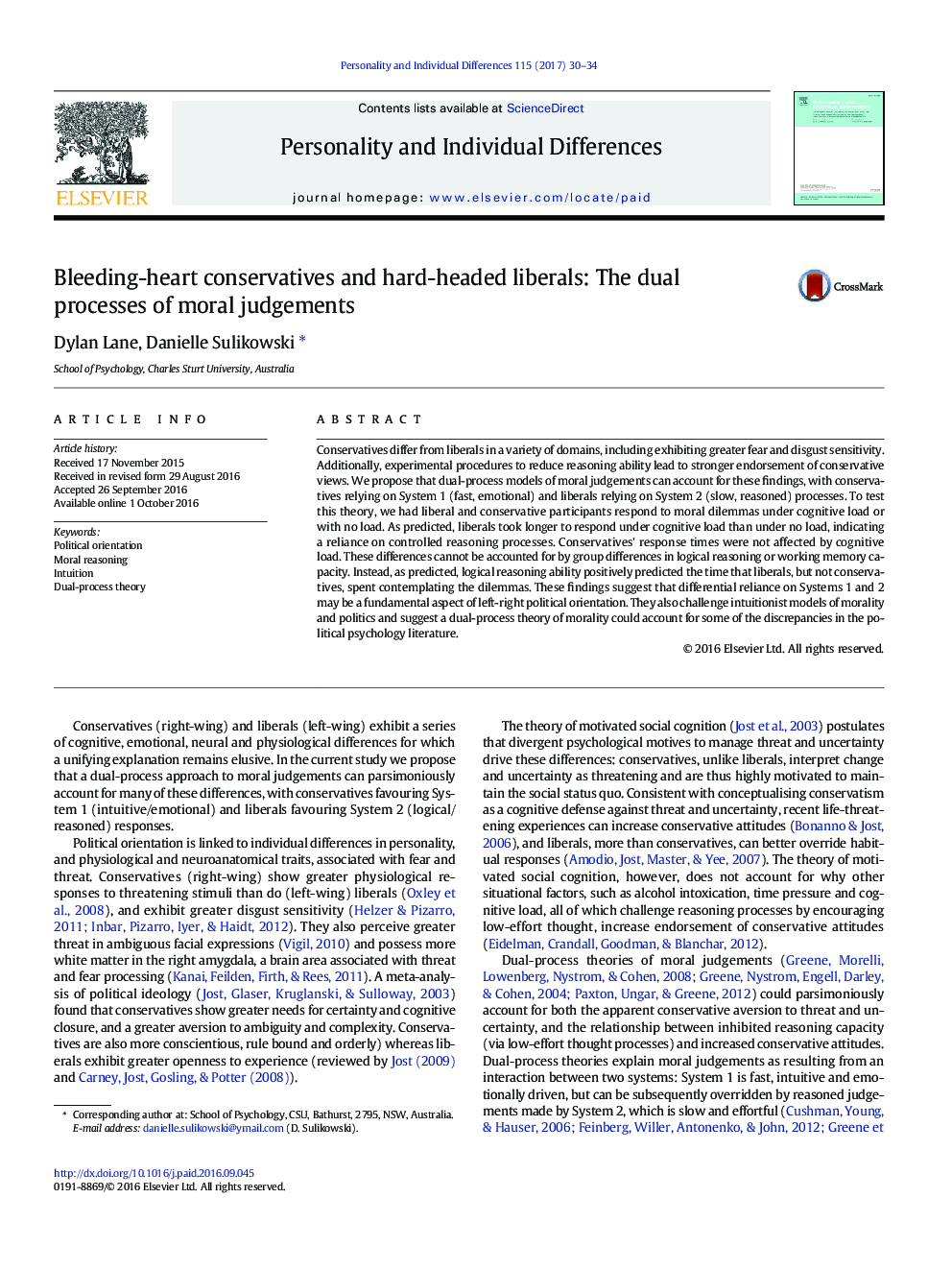| Article ID | Journal | Published Year | Pages | File Type |
|---|---|---|---|---|
| 5035837 | Personality and Individual Differences | 2017 | 5 Pages |
Conservatives differ from liberals in a variety of domains, including exhibiting greater fear and disgust sensitivity. Additionally, experimental procedures to reduce reasoning ability lead to stronger endorsement of conservative views. We propose that dual-process models of moral judgements can account for these findings, with conservatives relying on System 1 (fast, emotional) and liberals relying on System 2 (slow, reasoned) processes. To test this theory, we had liberal and conservative participants respond to moral dilemmas under cognitive load or with no load. As predicted, liberals took longer to respond under cognitive load than under no load, indicating a reliance on controlled reasoning processes. Conservatives' response times were not affected by cognitive load. These differences cannot be accounted for by group differences in logical reasoning or working memory capacity. Instead, as predicted, logical reasoning ability positively predicted the time that liberals, but not conservatives, spent contemplating the dilemmas. These findings suggest that differential reliance on Systems 1 and 2 may be a fundamental aspect of left-right political orientation. They also challenge intuitionist models of morality and politics and suggest a dual-process theory of morality could account for some of the discrepancies in the political psychology literature.
